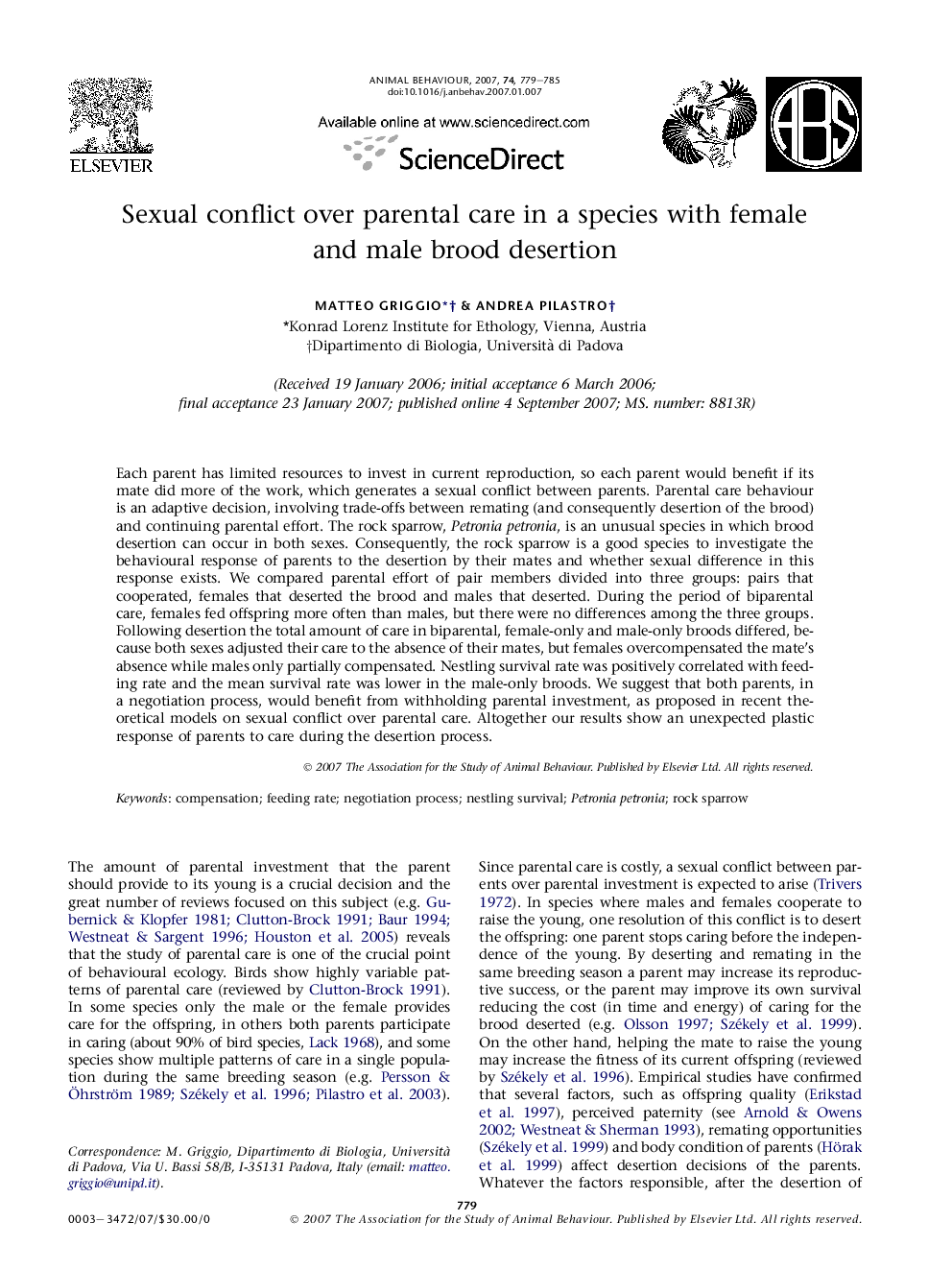| کد مقاله | کد نشریه | سال انتشار | مقاله انگلیسی | نسخه تمام متن |
|---|---|---|---|---|
| 2418222 | 1104341 | 2007 | 7 صفحه PDF | دانلود رایگان |

Each parent has limited resources to invest in current reproduction, so each parent would benefit if its mate did more of the work, which generates a sexual conflict between parents. Parental care behaviour is an adaptive decision, involving trade-offs between remating (and consequently desertion of the brood) and continuing parental effort. The rock sparrow, Petronia petronia, is an unusual species in which brood desertion can occur in both sexes. Consequently, the rock sparrow is a good species to investigate the behavioural response of parents to the desertion by their mates and whether sexual difference in this response exists. We compared parental effort of pair members divided into three groups: pairs that cooperated, females that deserted the brood and males that deserted. During the period of biparental care, females fed offspring more often than males, but there were no differences among the three groups. Following desertion the total amount of care in biparental, female-only and male-only broods differed, because both sexes adjusted their care to the absence of their mates, but females overcompensated the mate's absence while males only partially compensated. Nestling survival rate was positively correlated with feeding rate and the mean survival rate was lower in the male-only broods. We suggest that both parents, in a negotiation process, would benefit from withholding parental investment, as proposed in recent theoretical models on sexual conflict over parental care. Altogether our results show an unexpected plastic response of parents to care during the desertion process.
Journal: Animal Behaviour - Volume 74, Issue 4, October 2007, Pages 779–785